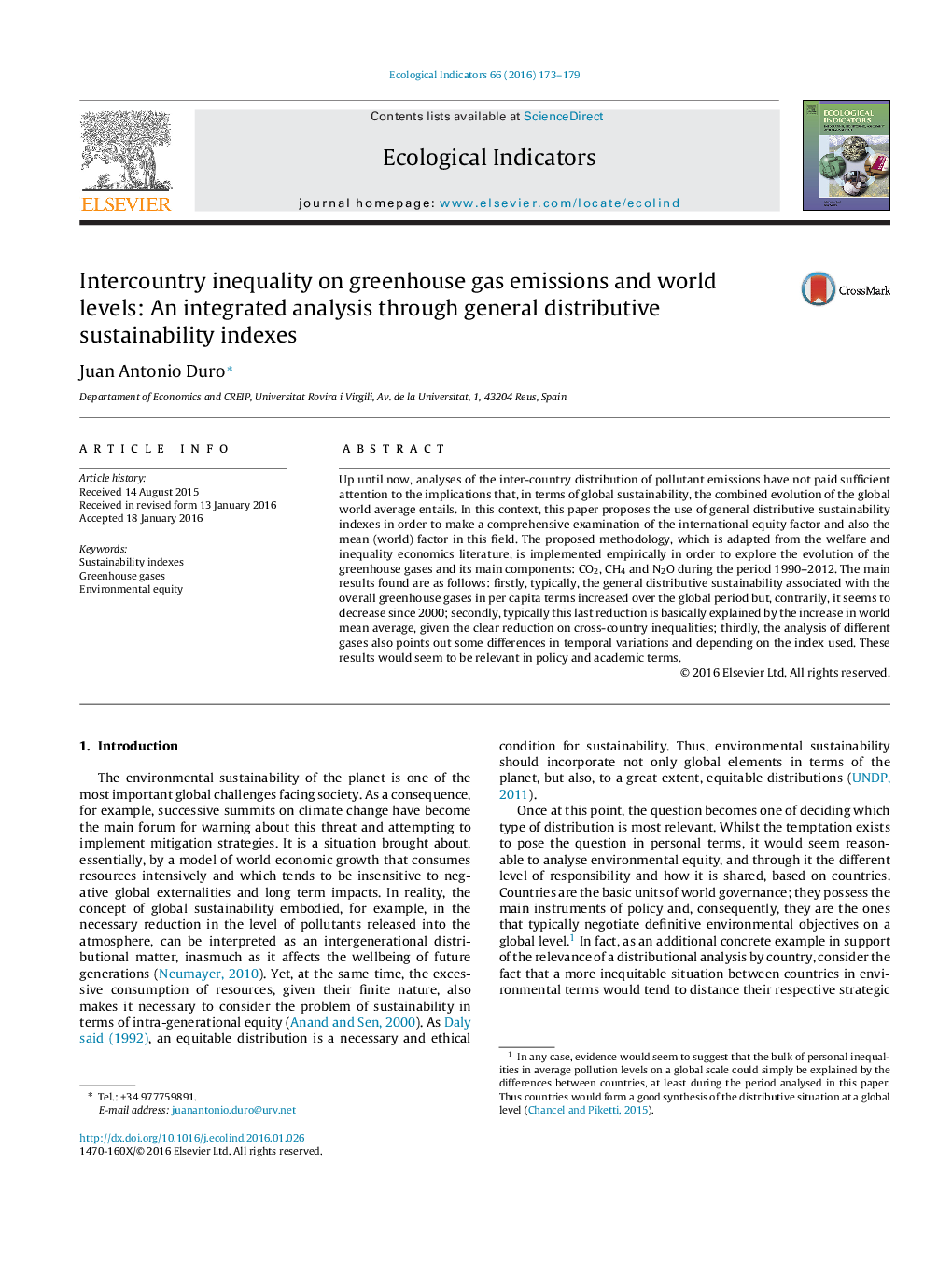| Article ID | Journal | Published Year | Pages | File Type |
|---|---|---|---|---|
| 6293427 | Ecological Indicators | 2016 | 7 Pages |
Abstract
Up until now, analyses of the inter-country distribution of pollutant emissions have not paid sufficient attention to the implications that, in terms of global sustainability, the combined evolution of the global world average entails. In this context, this paper proposes the use of general distributive sustainability indexes in order to make a comprehensive examination of the international equity factor and also the mean (world) factor in this field. The proposed methodology, which is adapted from the welfare and inequality economics literature, is implemented empirically in order to explore the evolution of the greenhouse gases and its main components: CO2, CH4 and N2O during the period 1990-2012. The main results found are as follows: firstly, typically, the general distributive sustainability associated with the overall greenhouse gases in per capita terms increased over the global period but, contrarily, it seems to decrease since 2000; secondly, typically this last reduction is basically explained by the increase in world mean average, given the clear reduction on cross-country inequalities; thirdly, the analysis of different gases also points out some differences in temporal variations and depending on the index used. These results would seem to be relevant in policy and academic terms.
Keywords
Related Topics
Life Sciences
Agricultural and Biological Sciences
Ecology, Evolution, Behavior and Systematics
Authors
Juan Antonio Duro,
